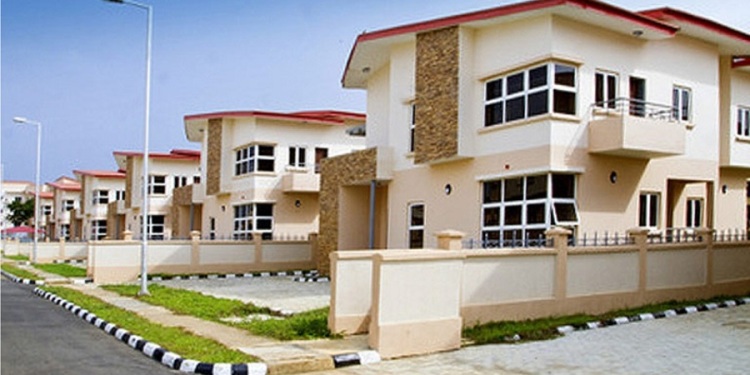With a housing deficit running into tens of millions, many Nigerians face the challenge of owning their own homes at some point in their lives. Buying or building one are no doubt the available choices, but only a few have the financial power to do so because of the huge capital usually required.
Normally, a mortgage would have been a viable alternative to owning a home, but several factors have made it difficult for most Nigerians to access mortgages.
Some real estate experts, who spoke with Nairametrics in separate interviews, have highlighted these factors that make it difficult for most Nigerians to own a property through a mortgage. According to them, these factors will continue to make access to mortgages a mirage for the average Nigerian.
What experts are saying
The Company Secretary, Living Trust Mortgage Bank Plc, Timothy Gbadeyan, explained that high-interest rate, low wages, and corruption are part of the major factors making it difficult for most Nigerians to access a mortgage to own a house.
According to him, if these challenges are not addressed they would continue to make access to mortgage a mirage for the average Nigerian.
He said, “Accessing mortgage in Nigeria is at an interest rate of around 17% or in some rare cases 16%. If the bank wants to give you N14million and your salary is N120, 000 in a state capital like Osogbo for instance.
“From that N120, 000, your mortgage payment should not exceed N40, 000. What kind of property will you be buying that N40, 000 will be able to service your principal plus interest within a period of 10 years? So when you look at a commercial mortgage as it is. It is outside the reach of the masses.”
Gbadeyan said that the mortgage industry in the Western world is dominated by three players in that cycle. The mortgage brokers, mortgage servicers, and mortgage funders.
“The mortgage brokers are the ones who carry out the pre-qualification. They’re like the marketers, they get all the details and do the needed groundwork and send it to the servicers. The servicers are the ones who will fund the mortgage. They take the due diligence the mortgage brokers have done, do their little checks, and provide the funds.
“The third layer, which comprises the mortgage funders, is like the market itself. The market funds it. They can just go to the market and raise bonds. They have different ways of raising funds. The thing is that our system is different. Here, what the mortgage broker and servicer do is what the mortgage banks do,” he said.
Gbenga Adebowale, another real estate expert, who is a member of the Nigerian Institute of Builders, agrees with Gbadeyan that for many years the industry has not had a mortgage funder.
According to him, it is on this basis that the association of the mortgage bankers met with the Ministry of Finance and there was a lot of engagements that led to the creation of the Nigeria Mortgage Refinance Company (NMRC).
He explained that the NMRC was created as a liquidity vehicle. They are the ones who go to the market to issue bonds and the primary mortgage banks can then request liquidity from them but the situation is still different from what obtains overseas in the sense that for primary mortgage banks to request liquidity from the NMRC, they need to give them a block of perfectible mortgages. They must have created those mortgages for a minimum of six months. Banks cannot also get as many funds as they are looking for. They have to meet a uniform underwriting standard.
“Mortgage is affordable in the Western world because all mortgage rates are single digits. The highest you will get will be in the region of six to seven per cent. This brings more people into the affordability bracket.
“In Nigeria, people fix money with mortgage bank for as high as 12%. Even the NMRC, when they are giving money to banks, their rates are as high as 12%. So, is it possible for any mortgage bank to now give you a mortgage at single digit? It’s impossible. The business of banks is the business of margins, of intermediation,” Adebowale said.
He added that the systemic corruption in the country’s private and public sectors had made the process of obtaining a mortgage, particularly the government-funded mortgage schemes, very difficult.
Bottomline
It appears that until the global best practices are embraced in the sector in the country, alongside a significant shift in the average wage structure, the subject matter of mortgage will remain a distant reality for most Nigerians.
Comparing the earning power in the West to Nigeria, it is observed that a driver earns between $1,000 to $3,000 a month, while professors don’t earn that much in Nigeria. If these issues are not fixed, no matter the kind of inclusion that you are driving in Nigeria, it is going to keep a lot of people outside the bracket.
Source : Nairametrics
































